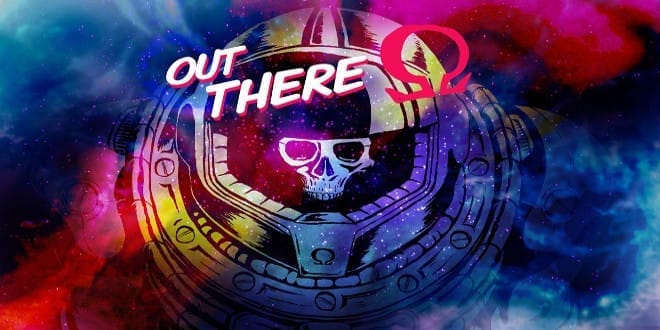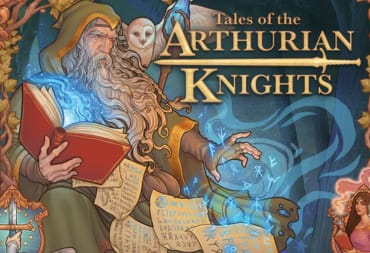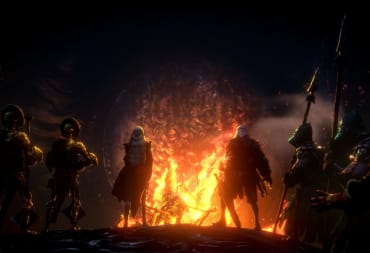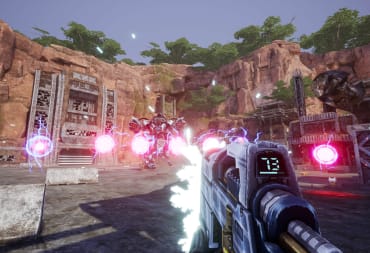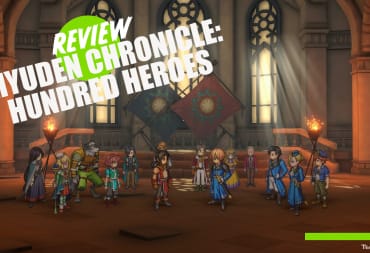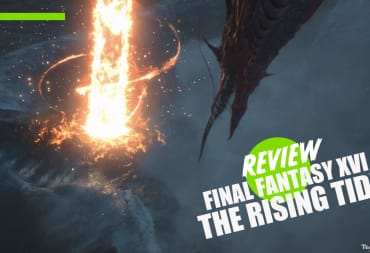If you haven't heard of Out There, yer not alone. One could be forgiven for missing this niche Android title, but now that the Omega Edition has arrived on PC, it's time to blow the lid on this baby. Let's start by checking out the official trailer below.
https://www.youtube.com/watch?list=PLpBujFJE5epSp8zk0ymiPEUkajVlWD7fx&v=1qHHa7VF5gI
Yeah, this trailer is kinda low-budget, but hopefully it's enough to pique your curiosity. Still, what is Out There Ω? Well, it's a wonderfully unique and low-maintenance roguelike. The title feels like a bizzaro version of FTL. Both games have players exploring star maps full of random events, and both games rely heavily on resource management and risk versus reward equations. Each game will see you in command of a single, lonely space ship, but that's where the similarities end.
For starters, there really isn't any combat in Out There: Omega Edition. I mean, yeah ... there are some space battles and encounters with hostile entities, but these are played out through text and multiple choice options. This may sound daunting to impatient types, but because the writing is interesting and brief, it really isn't a chore to plow through these mini text adventures.
The core of gameplay for Out There is inventory management. You see, as a player explores various star systems, they will come across much needed resources in the form of metals and gases. These elements are used for life support, fuel, repairs, and crafting new ship systems. All these things often take up an alarming amount of cargo space. Thankfully, the game's cutting difficulty makes the task of inventory management a lot more interesting than it sounds.
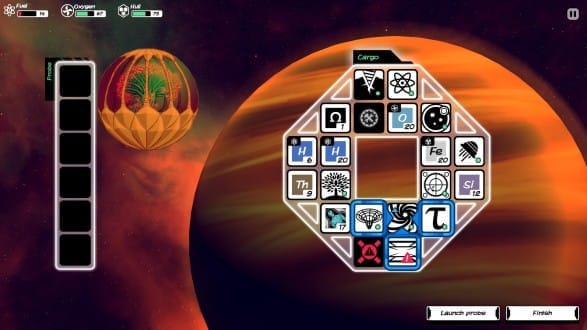 This seemingly boring chore only devolves into monotony under a very specific condition. You see, in order to harvest materials, a player must use either a drill or a probe. Both of these are capable of penetrating up to 10 levels deep. The deeper you go, the greater the yield. Unfortunately, going deeper comes at the cost of more fuel and an increased chance of breaking your drill or probe.
In situations where a player is really strapped for resources, it often becomes most effective to harvest several times from the top layer at the cost of only one unit of fuel and no chance of breaking your tools. Unfortunately, this method will have players continuously dragging single resources back into their cargo hold over and over again. This particular dynamic is probably the biggest flaw in the entire game. Players will most likely find themselves cornered into using this one-at-time technique several times during any given play through.
Here's a short video I made if you are having a hard time understanding the tedium here.
https://youtu.be/Zircoz30ynI
What all this fussing around with one's inventory really amounts to is a tooth and nail struggle to keep yourself from running out of fuel, oxygen and hull strength. Reach zero in any of these fields and it's game over. Such a simple sounding task, but really it's a very challenging balancing act. So far, I've played through the game 30+ times, and I've only reached victory thrice! A single victorious run takes an about an hour or two. Of course, losing takes dramatically less time.
Patient gamers who manage to muck through Out There's painful difficulty and occasionally tedious inventory management will be rewarded with an addictive and unique experience. A huge part of this rewarding experience is finding and capturing abandoned ships during one's explorations. These come with a random assortment of technological systems and have varying cargo capacities. Even base statistics are different. Some abandoned vessels may excel at life support but have weak power output, for example. Various ships may even use different materials for fuel or repair. Indeed, finding a new ship is probably the most important and exciting step towards achieving victory.
This seemingly boring chore only devolves into monotony under a very specific condition. You see, in order to harvest materials, a player must use either a drill or a probe. Both of these are capable of penetrating up to 10 levels deep. The deeper you go, the greater the yield. Unfortunately, going deeper comes at the cost of more fuel and an increased chance of breaking your drill or probe.
In situations where a player is really strapped for resources, it often becomes most effective to harvest several times from the top layer at the cost of only one unit of fuel and no chance of breaking your tools. Unfortunately, this method will have players continuously dragging single resources back into their cargo hold over and over again. This particular dynamic is probably the biggest flaw in the entire game. Players will most likely find themselves cornered into using this one-at-time technique several times during any given play through.
Here's a short video I made if you are having a hard time understanding the tedium here.
https://youtu.be/Zircoz30ynI
What all this fussing around with one's inventory really amounts to is a tooth and nail struggle to keep yourself from running out of fuel, oxygen and hull strength. Reach zero in any of these fields and it's game over. Such a simple sounding task, but really it's a very challenging balancing act. So far, I've played through the game 30+ times, and I've only reached victory thrice! A single victorious run takes an about an hour or two. Of course, losing takes dramatically less time.
Patient gamers who manage to muck through Out There's painful difficulty and occasionally tedious inventory management will be rewarded with an addictive and unique experience. A huge part of this rewarding experience is finding and capturing abandoned ships during one's explorations. These come with a random assortment of technological systems and have varying cargo capacities. Even base statistics are different. Some abandoned vessels may excel at life support but have weak power output, for example. Various ships may even use different materials for fuel or repair. Indeed, finding a new ship is probably the most important and exciting step towards achieving victory.
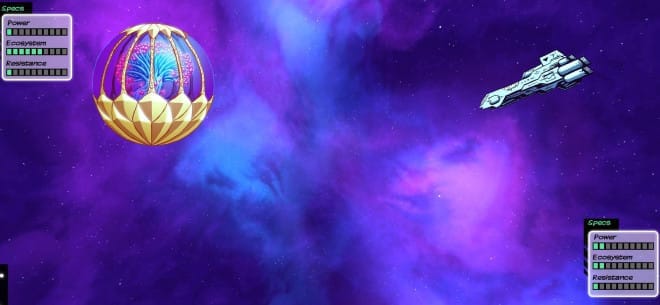 Speaking of achieving victory, to win the game, players must make it towards the far end of the map to one of several victory locations. For some of these, a player will need to have met certain prerequisites, while others will simply activate upon arrival.
All this is great fun, but still ... because Out There Ω is obviously an indie title with a limited budget, it's important to examine its production values.
Graphics are pretty pleasant and consist of colorful sci-fi scenes. There's not a lot to them, but they are pretty detailed and often animated. I found myself admiring several of the backdrops, so the visuals definitely have my seal of approval.
What doesn't have my seal of approval is the soundtrack. It's boring and uninspired, especially compared to something like FTL. Worse, it's often annoying and poorly balanced. I found myself turning the volume on the music to extremely low levels, or off. The sound effects are not quite as bad, but a couple could have their annoyance factor reduced.
Speaking of achieving victory, to win the game, players must make it towards the far end of the map to one of several victory locations. For some of these, a player will need to have met certain prerequisites, while others will simply activate upon arrival.
All this is great fun, but still ... because Out There Ω is obviously an indie title with a limited budget, it's important to examine its production values.
Graphics are pretty pleasant and consist of colorful sci-fi scenes. There's not a lot to them, but they are pretty detailed and often animated. I found myself admiring several of the backdrops, so the visuals definitely have my seal of approval.
What doesn't have my seal of approval is the soundtrack. It's boring and uninspired, especially compared to something like FTL. Worse, it's often annoying and poorly balanced. I found myself turning the volume on the music to extremely low levels, or off. The sound effects are not quite as bad, but a couple could have their annoyance factor reduced.
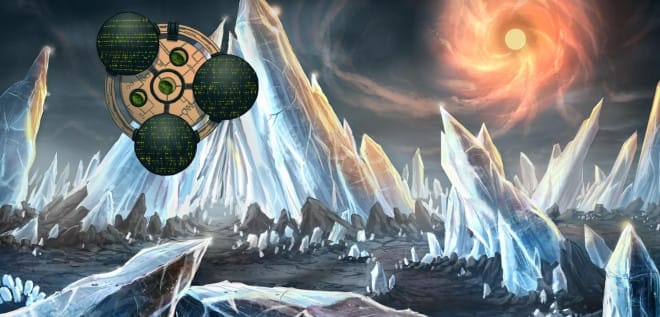 I feel it's worth clarifying that this Omega Edition is not simply a PC port, but also includes a lot of new content, such as: ships, text scenarios, and graphical scenes. Fans of the Android version might just find enough new content to warrant a purchase of the PC version, albeit at a greater price. The PC version is currently retailing for around $9, while the old Android version is just $4.
In the end, I find Out There: Omega is totally worth the price. It satisfies that part of me that wants to see more games like FTL, even if I must admit I don't hold it in quite as high regard as that revered title. It's a worthy IP that I hope to see more of in the future.
This game was purchased by me and played on PC.
I feel it's worth clarifying that this Omega Edition is not simply a PC port, but also includes a lot of new content, such as: ships, text scenarios, and graphical scenes. Fans of the Android version might just find enough new content to warrant a purchase of the PC version, albeit at a greater price. The PC version is currently retailing for around $9, while the old Android version is just $4.
In the end, I find Out There: Omega is totally worth the price. It satisfies that part of me that wants to see more games like FTL, even if I must admit I don't hold it in quite as high regard as that revered title. It's a worthy IP that I hope to see more of in the future.
This game was purchased by me and played on PC.
Review Summary
Something fun and different for patient gamers or fans of FTL. A worthy and unique title with just a couple flaws.
(Review Policy)Have a tip, or want to point out something we missed? Leave a Comment or e-mail us at tips@techraptor.net
